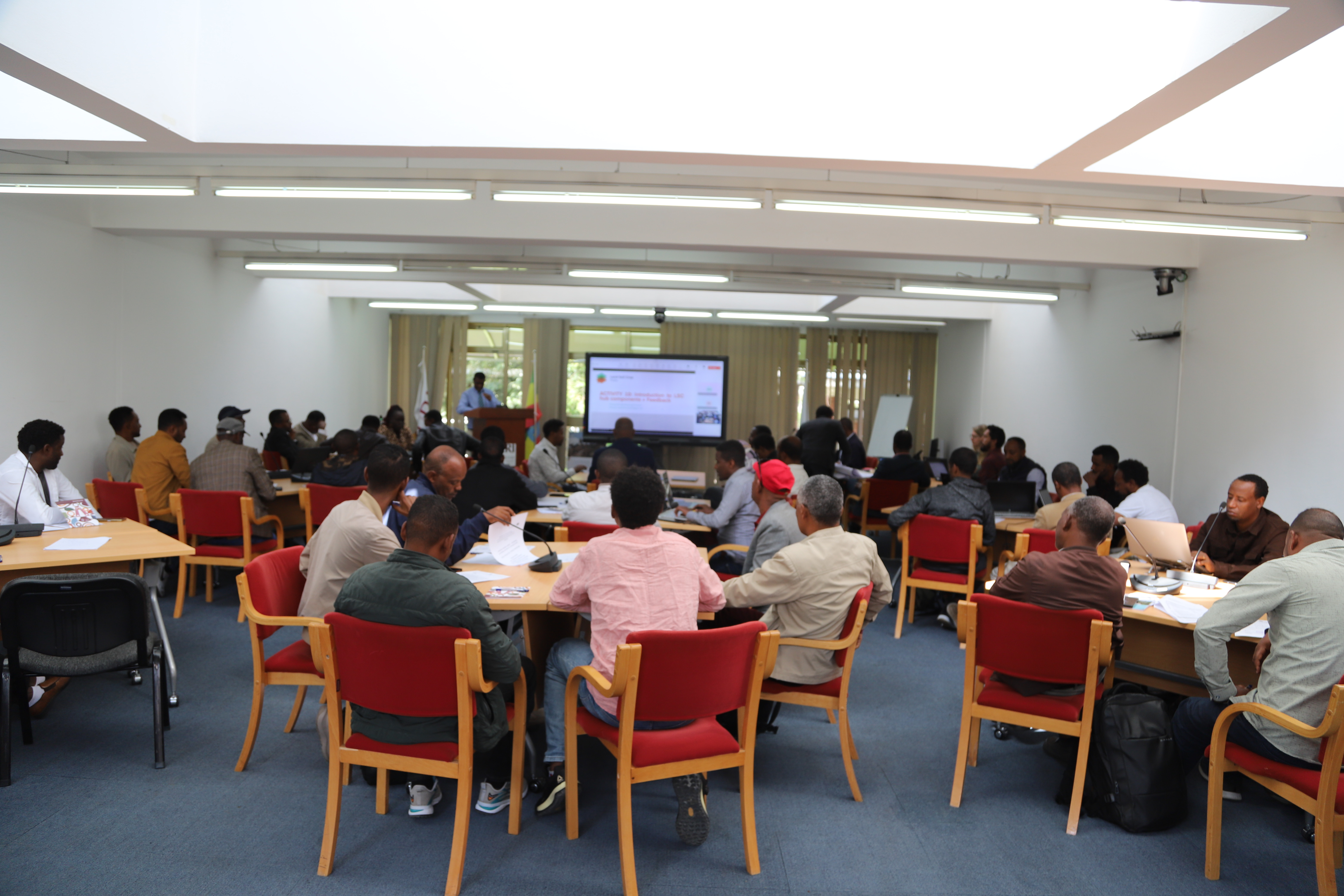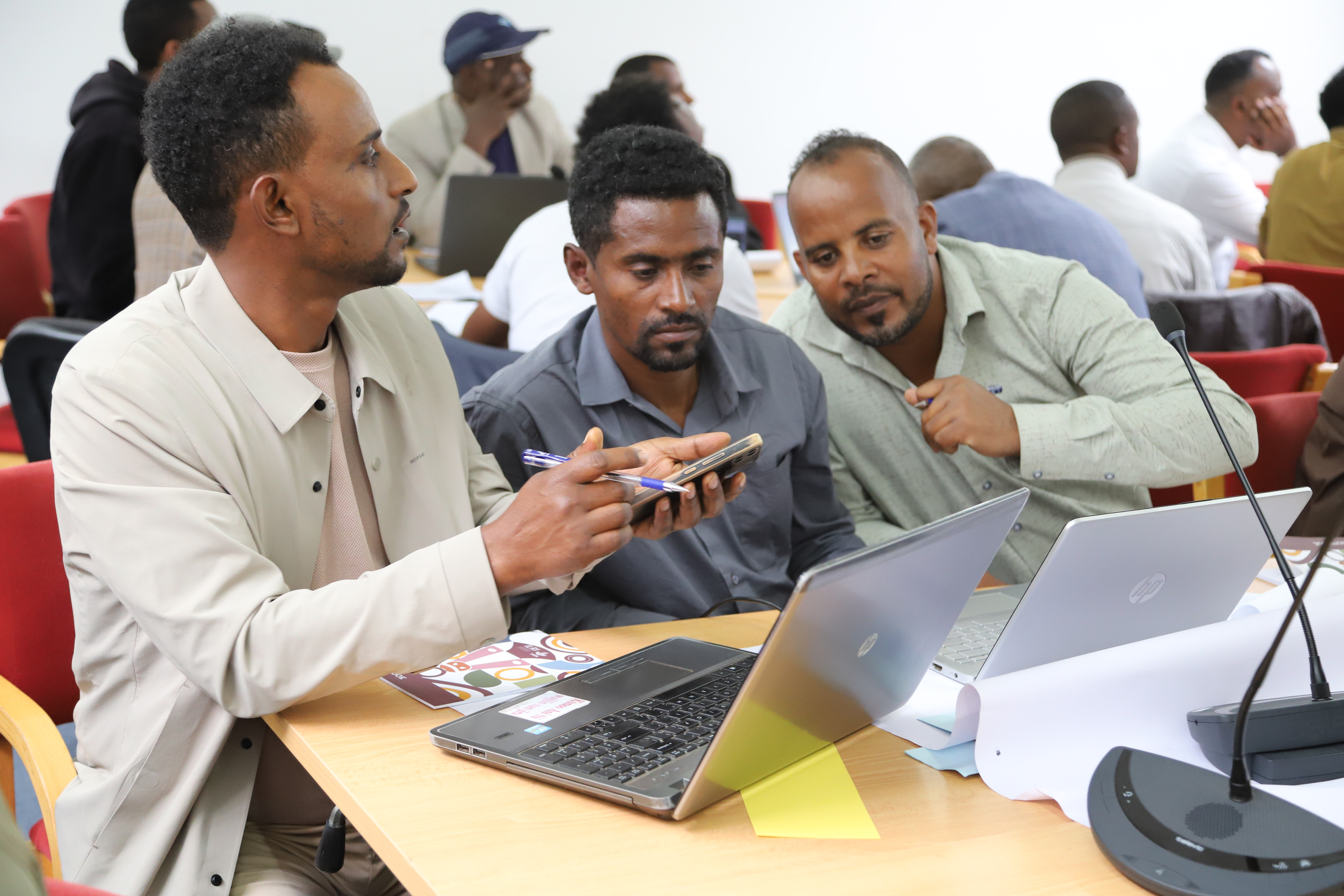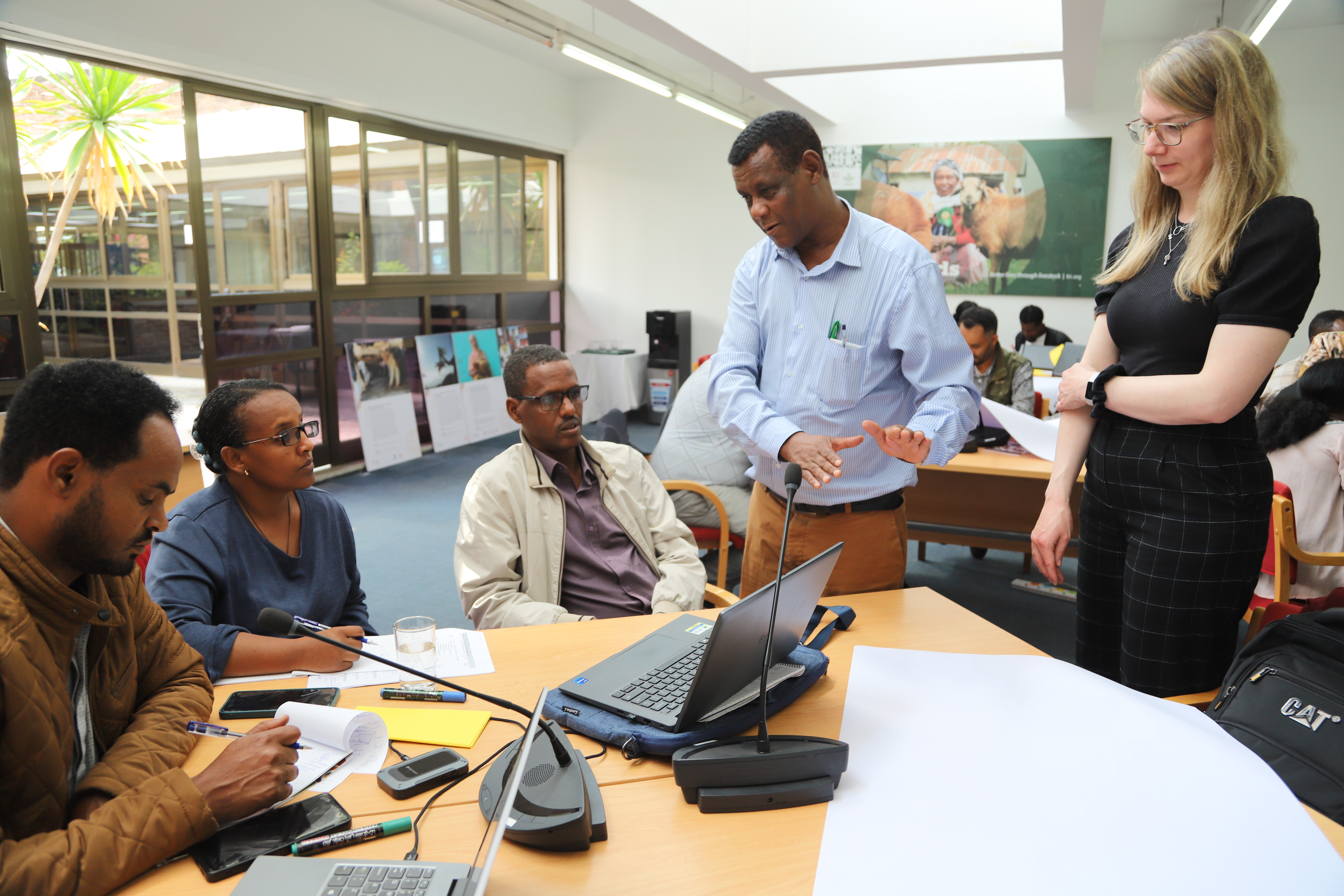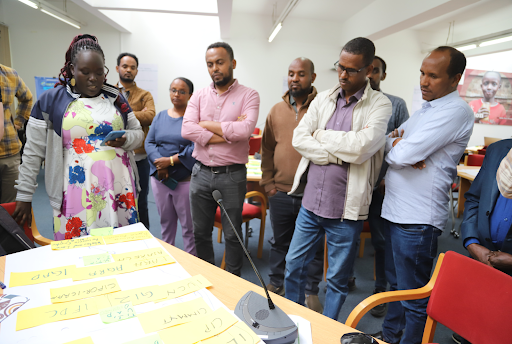Workshop on Advancing Climate-Smart Agriculture through Ethiopia's LSC-Hub
Date: May 30, 2025 Author: Genevieve Apio (ASARECA), John Recha (ILRI)
The five-day national workshop brought together stakeholders from the Ministry of Agriculture, Ethiopian Institute of Agricultural Research, ILRI, ASARECA, ISRIC - World Soil Information, Wageningen University & Research, and IUC to jointly plan the integration and sustainability of the LSC-Hub into Ethiopia’s agricultural systems.

Group picture of workshop participants
Addis Ababa, Ethiopia: From 26 to 30 May 2025, stakeholders from across Ethiopia convened at the International Livestock Research Institute (ILRI) in Addis Ababa for a five-day national and district-level workshop aimed at advancing Climate-Smart Agriculture (CSA) through Ethiopia’s Land, Soil, and Crop Information Services Hub (LSC-Hub). The event focused on integration, institutionalisation, scaling, and sustainability of the platform.
The workshop was attended by 86 participants, including 46 from the national level and 40 from two pilot districts: Basona Werana and Adami Tulu Jido Kombolcha. Participants included members of the LSC-IS Hub project team, representatives from the Ministry of Agriculture, academic institutions, research centres, development partners such as non-governmental organisations, farmer cooperatives, and private sector entities, including insurance providers.
This workshop marked a significant milestone for evaluating progress, gathering stakeholder feedback, and collaboratively developing a roadmap for the incorporation of the LSC-Hub into Ethiopia’s national agricultural systems.
Workshop objectives
The objectives of the workshop included:
- Demonstrating progress: Presenting the LSC-Hub’s achievements, focusing on practical application and stakeholder value, and collecting feedback from national and subnational participants
- Guiding integration with the National AgData-Hub: Gathering input to inform and refine the integration of the LSC-Hub with the Ministry of Agriculture’s National Agricultural Data Hub (AgData-Hub).
- Informing institutionalisation, scaling and sustainability strategies: Collaboratively developing key components for sustainable implementation, including (i) An institutionalisation roadmap identifying governance mechanisms; (ii) Strategies for scaling through extension systems and regional engagement; (iii) Approaches to ensure financial and technical sustainability and human capacity development.
Opening speeches
Representatives from ILRI and the Ethiopian Institute of Agricultural Research (EIAR) delivered opening remarks that emphasised the importance of data-driven innovation, strategic partnerships, and institutional alignment for climate-resilient agriculture for food and nutrition security for the 120 million Ethiopians.
Dr. Dawit Solomon from ILRI welcomed participants and emphasised the urgency of deploying platforms like the LSC-Hub to build adaptive capacity in the face of climate challenges. He stressed the need to strengthen agricultural systems through innovation and partnership.

Prof. Nigussie emphasised that the LSC-Hub was built on the premise that land, soil, and crop data are essential to CSA and would reinforce ongoing efforts to develop national agricultural data infrastructure.
In his keynote address, Dr. Diriba Geleti, EIAR’s Deputy Director General, highlighted pressing agricultural challenges, including soil fertility depletion and climate variability, and stressed the importance of using real-time data for actionable insights. He commended the collaboration between local and international partners in building a scalable and institutionalised system for CSA.
Demonstrating the platform’s capabilities
The first day showcased the technical aspects of the LSC-Hub, including its architectural design, data compilation processes, soil and crop mapping tools, and content management structure. Experts from ACATECH and ISRIC demonstrated how the platform integrates with the National Agricultural Data Hub. Plenary discussions focused on data harmonisation, interoperability, infrastructure needs, and governance models for sustainability.

Engaging users and gathering feedback
On the second day, participants engaged directly with the LSC-Hub’s interface through live demonstrations and scenario-based testing. Stakeholders, ranging from government officials to farmer representatives, worked in groups to explore how the platform could support policy planning, extension services, investment targeting, and program monitoring. Feedback collected in plenary helped shape future platform refinements.

Institutionalisation, scaling, and sustainability
The third day centred on embedding the LSC-Hub within Ethiopia’s agricultural ecosystem. Facilitated by experts from EIAR and ILRI, discussions explored legal, organisational, and financial pathways for institutionalisation. Participants co-developed a roadmap, outlined strategies for engaging regional governments and the private sector, and emphasised the need for human capacity development. Pilot use cases in Basona Werana and Adami Tulu Jido Kombolcha illustrated the platform’s practical applications in soil and water conservation and integrated soil fertility management.

District-level engagement
Over the last two days, the workshop shifted focus to district-level users. Agricultural officers, district planners, and researchers from the pilot areas received hands-on training on the LSC-Hub’s features and practical benefits. Facilitators demonstrated how the platform linked with user needs assessments and supported planning and extension services.

This workshop marked a significant step in Ethiopia’s journey toward data-informed, climate-smart agriculture. Participants left with a stronger shared vision and actionable pathways to scale the LSC-Hub for sustainable agricultural transformation.
Share